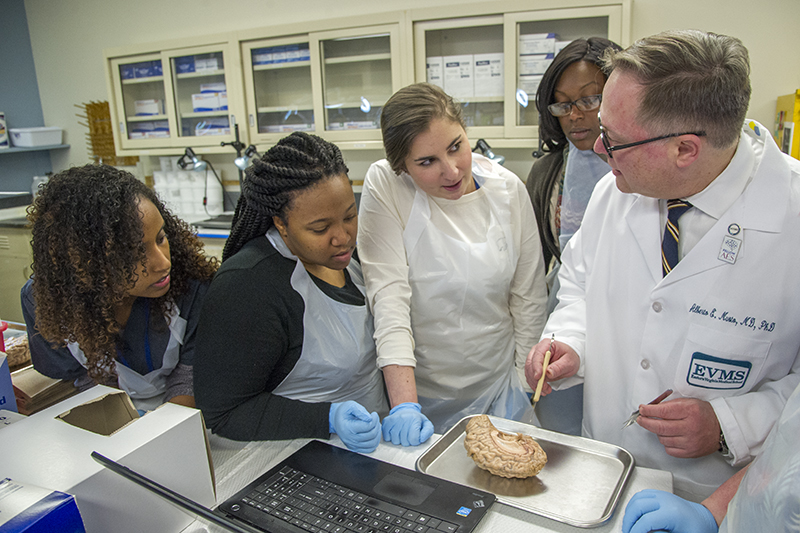New grant spurs study of potential epilepsy treatment

How does epilepsy develop, and is there a way to stop it? Those are two of the key questions Alberto Musto, MD, PhD, will address with a new grant from the Commonwealth Health Research Board.
Dr. Musto, Assistant Professor of Pathology & Anatomy, is using the grant to continue his research to better understand how inflammation in the nervous system contributes to the development of epilepsy. The $290,000 grant also will support his work with students studying medical neuroscience.
Dr. Musto became interested in epilepsy during his neurology training and practice in his native Buenos Aires, Argentina.
“I was inspired by patients with epilepsy and motivated by a strong passion to understand how the brain works,” says Dr. Musto, a fellow of the American Epilepsy Society. “After obtaining my PhD degree, I relocated to the US to study epileptogenesis, how the brain becomes epileptic.”
Dr. Musto’s research is focused on temporal lobe epilepsy (TLE), which has no cure or effective treatment in a subset of patients. Through his earlier research, Dr. Musto knows that inflammation in the brain is at least partly responsible for initiating TLE.
His latest line of study targets CD40L – an inflammatory molecule that increases following a brain injury. Dr. Musto has found that by limiting CD40 in an animal model he also limits the brain’s susceptibility to seizure.
A better understanding of how inflammation initiates seizure might eventually lead to a way to prevent and/or treat not only epilepsy but other diseases of the brain as well.
“These observations open an innovative target for an immuno-therapeutic approach for TLE that could be expanded to other neurological disorders disruptive neuronal networks, including Alzheimer’s disease and post-traumatic stress disorder,” Dr. Musto says.
Jerry Nadler, MD, the Harry H. Mansbach Chair in Internal Medicine, Vice Dean for Research and Professor and Chair of Internal Medicine, says the study of how inflammation can affect diseases of the brain is an important, yet understudied, area.
“Dr. Musto’s research is innovative and could lead to future new treatments for certain forms of epilepsy,” Dr. Nadler says.